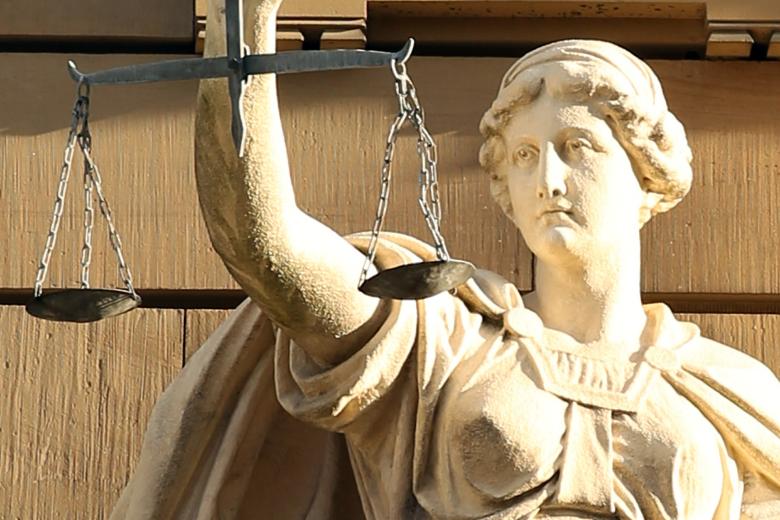Language plays a fundamental role as a channel for law. It can enable members of society to access justice. Conversely, an inadequate use of language may result in a dissociation of law from a specific society. Language is a fundamental means to convey messages, to know the law, and to shape the law. On occasions, law is presented in languages that do not correspond to those of the targeted societies. Comparative legal history can attest of such occasions. Similarly to radio frequencies, on such occasions messages were disrupted by “electromagnetic interferences” and did not reach their destination.
Hurbain v. Belgium: towards a fairer balancing exercise between the right to freedom of expression and the right to privacy?
- Law
Admittedly, the right to erasure, or more colloquially, the right to be forgotten is nothing new in the European legal landscape. Indeed, this right can be found as far back as 1981 in the predecessor of the Modernised Convention for the Protection of Individuals with regard to Automatic Processing of Personal Data (CETS No. 108) (Convention 108+).

The Cannabis Dilemma – Is the legalisation of cannabis in Europe possible?
- Law
Germany has elected a new government. One of the legal reforms coalition of Social democrats, the Green party and the free liberals want to put on the tracks is the legalization of cannabis. From a criminological point of view, this is the right decision.

House of Cards: when your worst enemy is one of your own
- Law
In the 1980s, in the heyday of Thatcherism, Scottish actor Ian Richardson starred in the leading role of Francis Urquhart in the BBC series House of Cards. In it, Urquhart, who starts out as the Chief Whip for the Conservative government led by Thatcher’s fictional successor, schemes against and manipulates his fellow MPs in order to emerge as Prime Minister of the United Kingdom. Indeed, it was this BBC version that provided the blueprint for the eponymous US Netflix drama that was all the rage during the Obama Years.

Is an IP waiver necessary to make vaccines available to all?
- Law
Having caused around five million deaths worldwide as of October 2021, the Covid-19 pandemic and an IP waiver proposal on Covid-19 related medical products before the WTO have been issues of world attention.

Let’s take a deep breath: on the EU (and academic) reaction to the Polish Constitutional Tribunal’s ruling
- Law
Breath in, breath out. Yes, the judgment of the (unlawfully composed) Polish Constitutional Tribunal is a serious challenge to the European Union’s legal system and to the principle of primacy of EU law. No, Poland has not activated the process of withdrawal from the EU under Article 50 TEU. Yes, EU institutions will need to take robust action in response to the ruling. No, this will not be the end of the EU as we know it, nor of Poland’s membership in the EU project. Let’s take another deep breath and briefly reflect on these main points in the next paragraphs.

M-EPLI Roundtable: Punitive Damages
- Law
What is the perspective of several countries on punitive damages in and outside of Europe? What issues arise from the recognition and enforcement of foreign (mostly US) punitive damages judgments? How do different countries view the public policy exception?
These questions and more were among the topics that were addressed during the M-EPLI Roundtable on punitive damages that took place on October 14th. The Roundtable was organized by Lotte Meurkens and Cedric Vanleenhove. Multiple experts shared their insights on the recognition and enforcement of punitive damages in several countries.

Resisting membership fatalism
- Law
While we fully agree with the main thrust of the editorial ‘The Exit Door’ on Verfassungsblog last Friday, we would like to warn against its seemingly fatalistic mindset. Yes, a Polexit from the EU is not on the table until the Polish government itself pushes the Article 50 TEU button, but the other EU Member States do not have to idly wait ‘hoping’ for a resolution to the crisis.

Kicking off the “EU and global cybersecurity fundamentals” course
- Law
I am very pleased that today we will start teaching the EU and Global Cybersecurity Fundamentals course within the Advanced Master in Privacy, Cybersecurity and Data Management LLM we created at ECPC. Today we will kick off the course with Brian Honan, who will lecture on the concept of cybersecurity and provide an introduction to cryptographic tools.

Boards of appeal of EU agencies at a crossroads
- Law
The Boards of Appeal established for the decision-making agencies perform a function that lies between exercising administrative review, at the one end, and offering judicial review, at the other. It is still unclear in which direction they will ultimately move, and more research in this fast-developing area of EU administrative law is needed.

